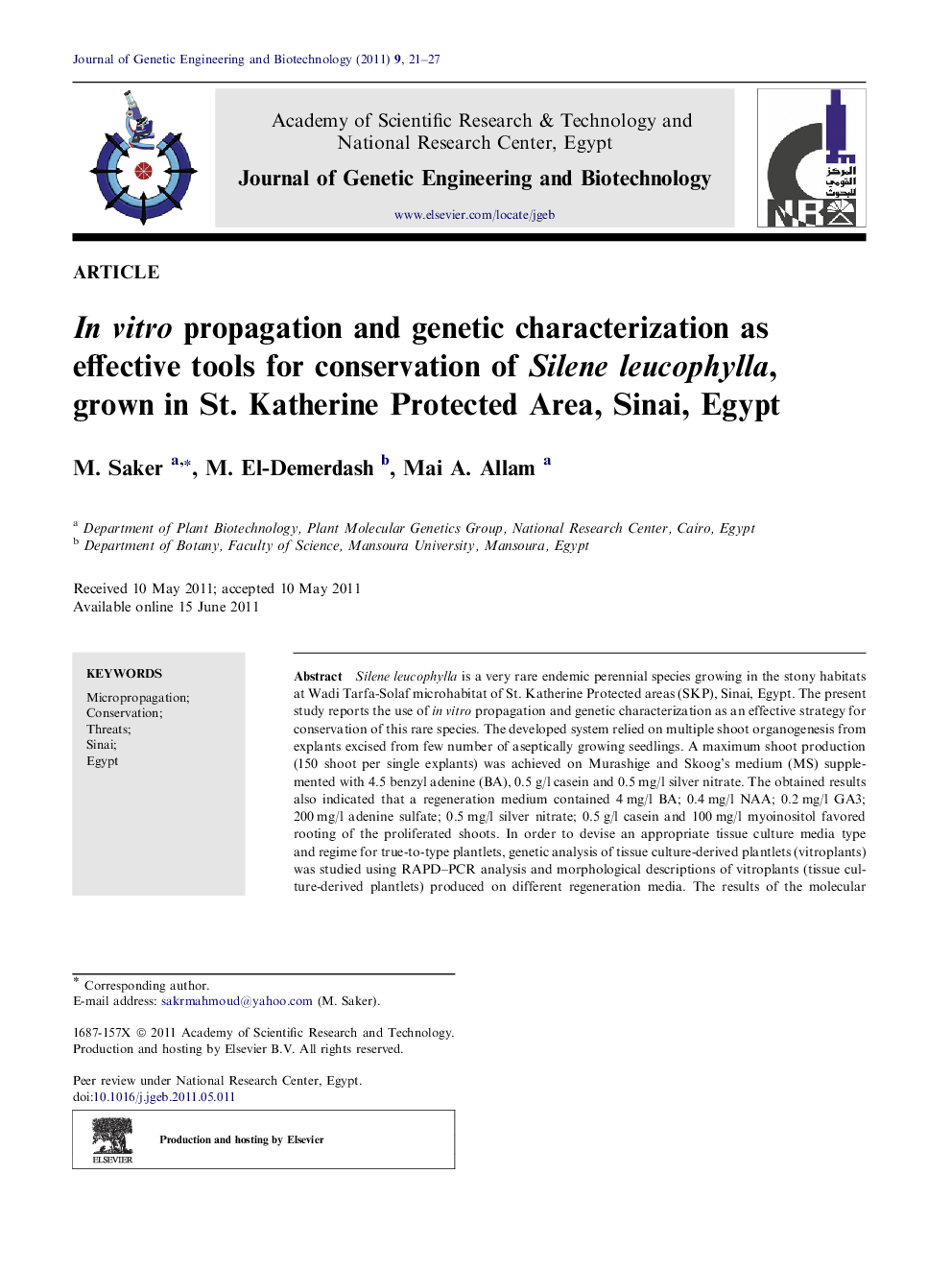| Article ID | Journal | Published Year | Pages | File Type |
|---|---|---|---|---|
| 2087991 | Journal of Genetic Engineering and Biotechnology | 2011 | 7 Pages |
Silene leucophylla is a very rare endemic perennial species growing in the stony habitats at Wadi Tarfa-Solaf microhabitat of St. Katherine Protected areas (SKP), Sinai, Egypt. The present study reports the use of in vitro propagation and genetic characterization as an effective strategy for conservation of this rare species. The developed system relied on multiple shoot organogenesis from explants excised from few number of aseptically growing seedlings. A maximum shoot production (150 shoot per single explants) was achieved on Murashige and Skoog’s medium (MS) supplemented with 4.5 benzyl adenine (BA), 0.5 g/l casein and 0.5 mg/l silver nitrate. The obtained results also indicated that a regeneration medium contained 4 mg/l BA; 0.4 mg/l NAA; 0.2 mg/l GA3; 200 mg/l adenine sulfate; 0.5 mg/l silver nitrate; 0.5 g/l casein and 100 mg/l myoinositol favored rooting of the proliferated shoots. In order to devise an appropriate tissue culture media type and regime for true-to-type plantlets, genetic analysis of tissue culture-derived plantlets (vitroplants) was studied using RAPD–PCR analysis and morphological descriptions of vitroplants (tissue culture-derived plantlets) produced on different regeneration media. The results of the molecular analysis using RAPD–PCR indicated that optimization of in vitro culture system based on tissue culture criteria must be coupled by simple, cheap and reproducible method for the detection of genetic stability at the DNA level vitroplants.
